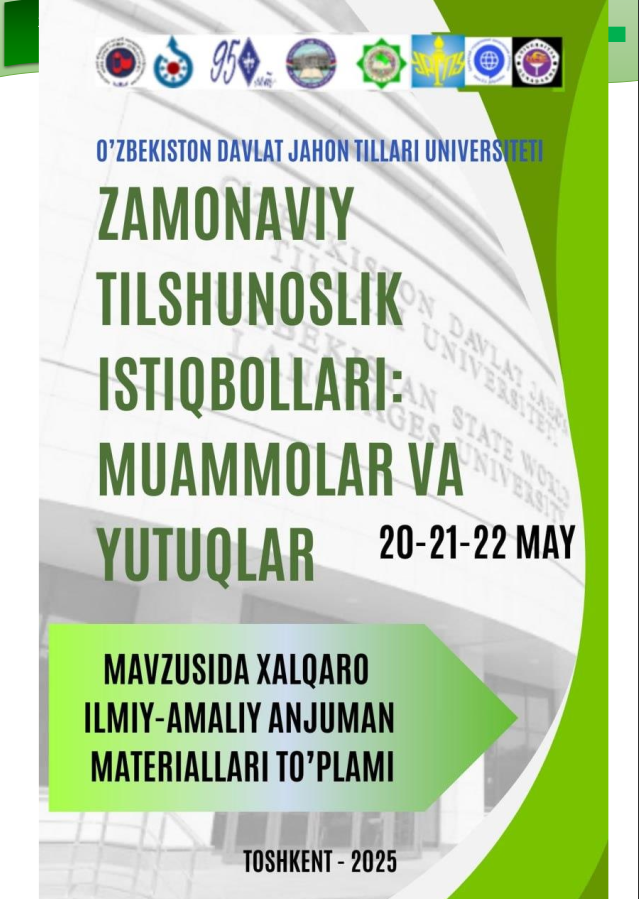THE INNER DIALOGUE OF GENERATION Z: A PSYCHOLINGUISTIC PERSPECTIVE ON LANGUAGE AND THOUGHT
https://doi.org/10.5281/zenodo.15590406
Kalit so‘zlar
inner dialogue; Generation Z; multilingualism; emotional regulation; identity; psycholinguistics; Vygotsky; dialogical selfAnnotasiya
This study explores the phenomenon of inner dialogue among Generation Z through a mixed-methods approach, combining original survey data—featuring both quantitative and open-ended qualitative questions. Focusing on multilingual youth in a post-Soviet context, the research examines how inner speech functions as a tool for emotional regulation, identity negotiation, and linguistic adaptation. The findings reveal a complex interplay between critical and supportive inner voices, often influenced by digital culture and code-switching. To interpret these patterns, the study draws on Vygotsky’s theory of internal speech and Hermans’ model of the dialogical self, framing inner dialogue as both a cognitive process and a socio-cultural construction. By integrating empirical data with established psycholinguistic frameworks, the research contributes to a deeper understanding of how language, thought, and self-perception converge in the internal world of contemporary youth.
Foydalanilgan adabiyotlar ro‘yhati
Fernyhough C. Getting Vygotskian about theory of mind: Mediation, dialogue, and the development of social understanding // Developmental Review. — 2008. — Vol. 28, No. 2. — Pp. 225–262.
Hermans H. J. M. The dialogical self: Toward a theory of personal and cultural positioning // Culture & Psychology. — 2001. — Vol. 7, No. 3. — Pp. 243–281.
Markus H. R., Kitayama S. Culture and the self: Implications for cognition, emotion, and motivation // Psychological Review. — 1991. — Vol. 98, No. 2. — Pp. 224–253.
Morin A. Self-awareness deficits following loss of inner speech: Dr. Jill Bolte Taylor’s case study // Consciousness and Cognition. — 2009. — Vol. 18, No. 2. — Pp. 524–529.
Triandis H. C. Individualism & collectivism. — Boulder: Westview Press, 1995.
Vygotsky L. S. Thought and language / A. Kozulin, trans. — Cambridge, MA: MIT Press, 1986. — (Original work published 1934).
Wells G. The meaning makers: Children learning language and using language to learn. — Portsmouth, NH: Heinemann, 1986.

